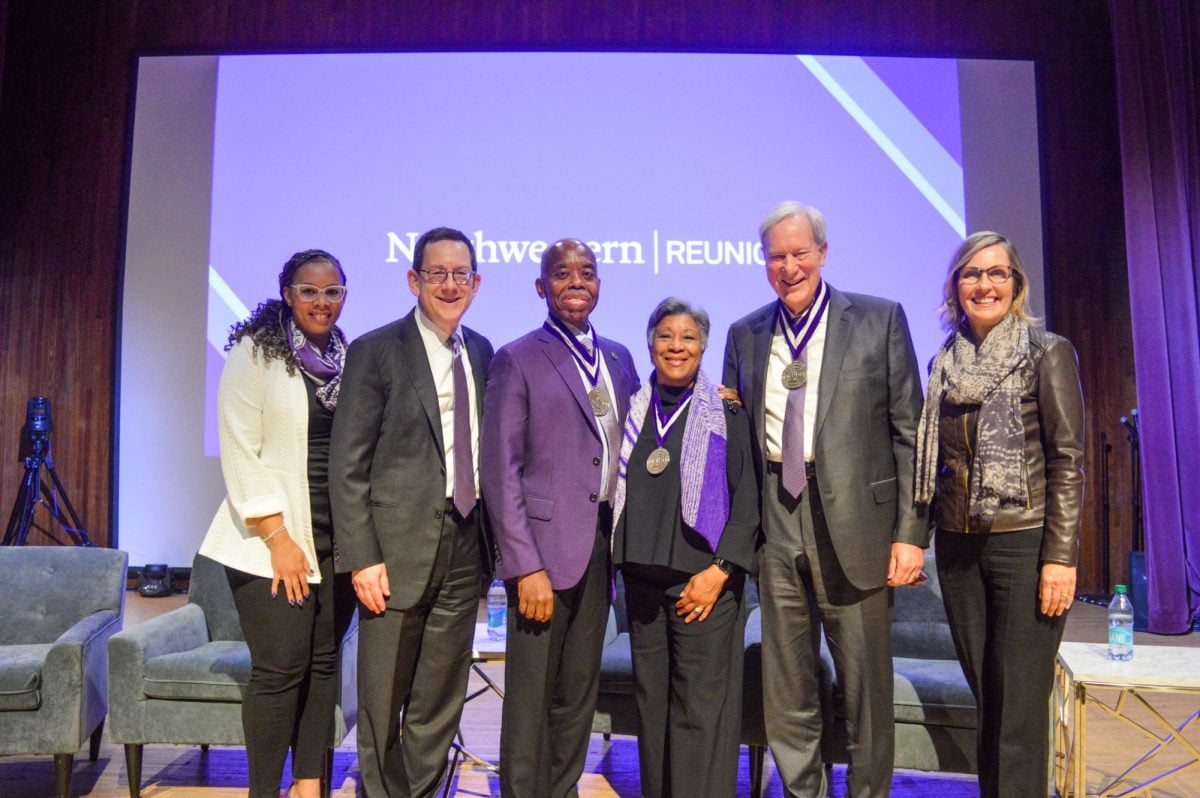A Texas inmate is scheduled for execution Wednesday despite efforts by the Medill Innocence Project to force the state court to approve DNA testing that could clear him of the charges.
In 1995, Henry “Hank” Skinner was convicted of the 1993 rape and murder of his girlfriend, Twila Busby, along with the murders of her two adult sons, but has maintained his innocence ever since. In 2000, the Medill Innocence Project, which funds
Northwestern’s journalism class in investigating potential wrongful convictions, began looking into his case and advocating for further DNA testing.
David Protess, the founder and former director of the Medill Innocence Project, said unless an appeals court or Texas Gov. Rick Perry intervenes, Skinner will be executed.
“The problem is Texas is moving as fast as they can to execute,” Protess said. “That’s what’s so friggin’ outrageous here is that they’re trying to put to death a man who has a reasonable claim to more testing.”
Following years of investigation with the Innocence Project, Protess is contributing a series of blog posts for the Huffington Post about the case, which continues to draw national and international media attention. He and others pushing for a stay of execution argue a jacket found at the scene, the rape kit and the murder weapon should all be tested to see if they contain Skinner’s DNA.
After Protess first heard about the case in 2000 from a Medill alumnus, he offered to send a team of NU students down to Texas to interview Skinner and begin investigating the doubts about the conviction.
“I was stunned to see that much of the DNA evidence had not been tested,” he said. “I thought it would be a simple case and so I … sent the first team [of students] to Texas. What they found poked major holes in the prosecution’s case.”
Last year, Gaby Fleischman (Medill ‘10) and three other Innocence Project students interviewed the jurors in the case and informed them of the untested evidence and that a key witness in the case had recanted part of her testimony during the initial Innocence Project investigation.
“They were all just in shock, they were really surprised,” Fleischman said. “A couple of them even said that if this had been presented in court [their] vote would not have been guilty. One woman was in tears.”
Fleischman said she keeps in touch with Skinner.
“I got a letter from him last week,” she said. “It’s hard to tell exactly how he’s feeling but you can tell he’s a little nervous. His last sentence to me was ‘Write, write, write, I don’t have much time.'”
Last year, the U.S. Supreme Court granted Skinner a stay of execution to allow him to continue his appeals. However, his trial court appeal failed last week and his execution has been approved by the state judge in the case. He is currently appealing to the Texas Court of Criminal Appeals.
In order to postpone the Wednesday execution, this board will have to order the DNA testing or Perry, a presidential candidate in the Republican Party, will have to allow a 30-day reprieve.
“If [the Texas Court of Criminal Appeals grants] the stay, as I expect they will, they’ll determine whether Skinner is allowed to get testing under the state court,” Protess said.
Much of the doubt that Protess and Fleischman see in the case stems from Busby’s uncle, whom some Skinner supporters say could be a suspect in the case based on statements Busby may have made to friends. The uncle, Robert Donnell, died in a car accident in 1997.
“We went around and brought a picture of the jacket [found at the crime scene] to a woman and she identified it in one second as saying it was the uncle’s,” Fleischman said. “I mean, there’s evidence on there. They have this jacket and they’ve never tested it.”
The Innocence Project is no longer actively investigating the case. Protess resigned from NU this summer and the project has been under the direction of Medill Prof. Alec Klein since Spring Quarter.
Current Investigative Journalism student Fenit Nirappil said the project “barely” talks about any past investigations.
“We’re very focused on our new investigations and wrapping those up,” he said.
Still, Nirappil said he sees the lack of DNA testing as indicative of larger problems in the American court system.
“Having DNA testing in place is part of a wider pursuit of the truth, which is lost a lot of the time in the criminal justice system,” Nirappil said.
As the countdown continues to the execution date, Protess said his aim in continuing to draw attention to the case is to get more DNA testing completed, not necessarily to clear Skinner of the crime.
“The remaining [untested] evidence is quite significant,” he said. “We’re talking about vaginal swabs taken from the victim. We’re talking about a windbreaker found two feet from her body that did not belong to anyone in the house.… My position is just that there is enough doubt that they should test all the evidence.”












